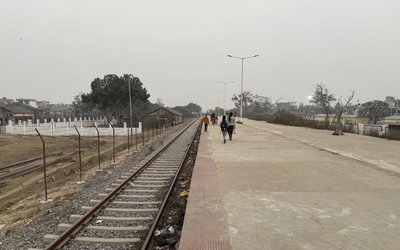
A new study by the International Center for Transitional Justice finds that victims of human rights violations committed during Nepal’s 10-year armed conflict continue to experience hardship – and calls on the government to implement a comprehensive reparations program to respond to their acute and long-term needs.
"In 2008, the government of Nepal introduced an Interim Relief Program (IRP) to provide assistance to individuals who had suffered human rights abuses during the internal armed conflict. Since then, tens of thousands of people have received benefits in the form of cash payments, scholarships, reimbursement of medical costs, compensation for loss of or damage to property, and skills training," reveals ICTJ report.
However, according to the ICTJ study, titled “‘To Walk Freely with a Wide Heart’: A Study of the Needs and Aspirations for Reparative Justice of Victims of Conflict-Related Abuses in Nepal,” the state has not yet addressed the full harms suffered by conflict victims or significantly contributed to repairing them.
More than 400 victims of human rights abuses by state and Maoist forces were interviewed for the study, which was jointly undertaken by the Center for Research on Environment Health and Population Activities (CREHPA), in 10 Nepali districts. Victims participated in group discussions that probed their short- and long-term needs and expectations for reparations.
“Our goal was to hear directly from survivors and the families of victims to give them the chance to identify the needs resulting from, or exacerbated by, violations they experienced, and the forms of reparations and transitional justice measures they want prioritized,” explained Ruben Carranza, director of ICTJ’s Reparative Justice program. “We spoke with victims who had received benefits through the IRP as well as those who had been excluded.”
The study revealed that in many cases victims were already disadvantaged before the conflict, due to poverty, caste, or other forms of economic marginalization or social discrimination. Violations had left some in situations of extreme poverty. Women in particular reported deteriorating physical and mental health while continuing to carry enormous economic burdens, often resulting from the loss of a husband or family breadwinner.
A significant number of participants reported spending what little money they had on medical bills, legal costs, and the search for disappeared loved ones. Ranked consistently at the top of the list of immediate needs were financial support, employment, free education, free medical care, and subsistence needs (“food, shelter, and clothing”).
Torture survivors spoke of their worsening physical and psychological condition and their anger and frustration at having received no care.
As a torture survivor in Kapilvastu reported: “I was tortured badly by the security forces. They accused me of sheltering Maoists. I had severe injuries and had to spend over four lakh [USD $4,000] on treatment . . . I’ve spent all of my savings. Now I’m worried about my children. How will I feed and educate them?”
Looking beyond immediate needs, the study also revealed a more holistic understanding of “justice” among respondents. Victims shared their broad aspirations for measures that would address the moral and nonmaterial dimension of harms, including the punishment of perpetrators, truth seeking, searching for the disappeared, and long-term security and protection.
The report stresses that the government should not wait for a Truth and Reconciliation Commission to complete its work before carrying out a comprehensive reparation program, as this could take many years. Any additional delays would further compromise victims’ rights to restitution.
“The findings are a stark reminder of the extent of suffering endured by conflict victims, who continue to wait for a full reparations program to receive the care and compensation they need and have a legal right to receive,” said Jan Borgen, ICTJ’s Head of Office in Nepal. “Much more needs to be done by the government to address these harms.”
- NEPAL-THAILAND: Joint Business Council
- Apr 13, 2025
- BIMSTEC SUMMIT: Nepal’s Stand
- Apr 11, 2025
- IME GROUP: Expands Into Paper Industry
- Mar 24, 2025
- CPN UML: Instigated By India
- Mar 23, 2025
- ADB’S CHIEF ECONOMIST: Nepal Reduces Poverty
- Mar 11, 2025















